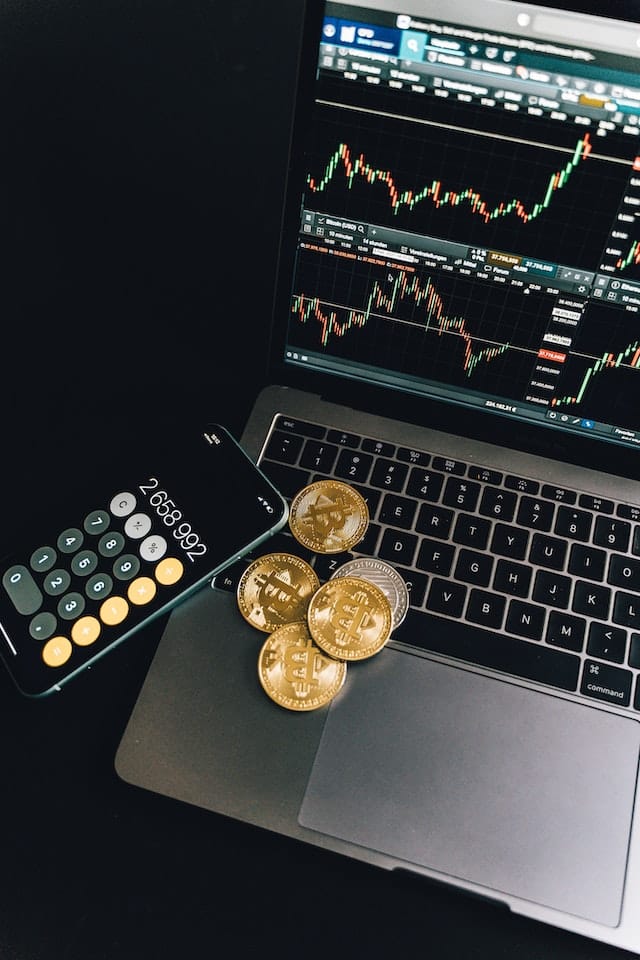In the swiftly evolving technological terrain of today, the amalgamation of diverse pioneering advancements has been profoundly molding our interactions with the surrounding world. At the vanguard of this amalgamation stand two groundbreaking technologies, a trailblazer in the realm of cryptocurrencies, and the synergistic pairing of Artificial Intelligence (AI) and the Internet of Things (IoT). Within this all-encompassing article, we embark on a profound exploration of the intricate interplay between these domains, delving into how Bitcoin assumes a pivotal role in propelling technological convergence and effecting a revolution across various industries. Most importantly, understanding market patterns with advanced analytics should be a goal.
Understanding the Foundations: Bitcoin, AI, and IoT
Bitcoin: The Pioneer of Cryptocurrencies
Bitcoin, introduced in 2009 by the pseudonymous Satoshi Nakamoto, marked the inception of cryptocurrencies. It operates on a decentralized ledger technology called blockchain, which ensures transparency, security, and immutability of transactions. Bitcoin’s key attributes include its limited supply, allowing it to act as a digital store of value akin to gold, and its potential to reshape traditional financial systems.
Artificial Intelligence (AI): Enabling Smart Decision-making
AI, the simulation of human intelligence in machines, has witnessed exponential growth in recent years. Machine Learning (ML) and Deep Learning (DL) are integral components of AI that empower systems to learn from data and make informed decisions. AI is increasingly applied across sectors, from healthcare and finance to manufacturing and entertainment, enhancing efficiency and enabling data-driven insights.
Internet of Things (IoT): Interconnecting the World
IoT involves connecting everyday objects to the internet, enabling them to send and receive data. This interconnected network of devices enhances automation, data collection, and communication. From smart homes and wearable devices to industrial sensors, IoT has the potential to revolutionize industries and improve quality of life.
The Convergence: How Bitcoin Aligns with AI and IoT
● Decentralization and Security: A Shared Vision
Bitcoin’s decentralized nature aligns with the principles of security and privacy in the realm of AI and IoT. Just as Bitcoin transactions are secure and transparent due to blockchain, AI and IoT systems can benefit from enhanced security protocols. AI can analyze vast amounts of IoT-generated data to identify patterns and anomalies, while blockchain ensures the integrity and immutability of this data.
● Smart Contracts and Automation
Bitcoin introduced the concept of smart contracts – self-executing contracts with terms directly written into code. Similarly, AI-powered smart contracts can streamline processes and automate agreements in IoT applications. For instance, smart contracts could facilitate automated supply chain management, ensuring seamless coordination between interconnected devices.
● Data Synergy and Machine Learning
AI thrives on data, and the vast amounts of data generated by IoT devices can be harnessed to train more advanced AI models. Machine Learning algorithms can analyze IoT data streams in real time, enabling predictive maintenance, anomaly detection, and personalized experiences. Bitcoin’s underlying blockchain technology ensures data integrity and reliability, further enhancing AI’s capabilities.
Industries Transformed: Bitcoin, AI, and IoT Colliding
● Finance and Cryptocurrencies
The financial industry has experienced a profound transformation with the introduction of Bitcoin. Cryptocurrencies are reshaping traditional banking, payments, and remittances. AI-driven algorithms analyze market trends to inform cryptocurrency trading, while IoT-enabled devices securely manage transactions, revolutionizing financial services.
● Healthcare and Wearable Tech
The healthcare sector benefits from the convergence of AI, IoT, and Bitcoin. Wearable devices equipped with IoT sensors collect patient data, which AI algorithms analyze to provide real-time health insights. Blockchain ensures the privacy and security of sensitive medical data, allowing patients to maintain control over their information.
● Supply Chain and Logistics
Supply chains have become more efficient and transparent through the integration of Bitcoin, AI, and IoT. Blockchain tracks the journey of goods, AI predicts demand patterns, and IoT sensors monitor product conditions during transit. This convergence minimizes disruptions, reduces waste, and enhances overall supply chain management.
The Future Landscape: Opportunities and Challenges
As Bitcoin continues to intertwine with AI and IoT, limitless opportunities emerge. However, challenges such as scalability, energy consumption, and regulatory concerns must be addressed. Collaborative efforts between technologists, policymakers, and industries are essential to harness the full potential of this convergence responsibly.
Conclusion
In the intricate and dynamic interplay of technological forces, the significance of Bitcoin in driving the convergence of Artificial Intelligence (AI) and the Internet of Things (IoT) emerges as a pivotal factor with profound implications. Beyond its foundational decentralized nature and robust security attributes, Bitcoin’s pioneering concepts like smart contracts seamlessly intertwine with the transformative potential of AI and IoT. As these interconnected realms continually evolve and mutually influence one another, industries are poised for substantial restructuring, economies are on the brink of fundamental transformation, and our global landscape is on the cusp of a revolutionary innovation epoch. This convergence not only underscores the remarkable capabilities of human inventiveness but also pushes the frontiers of what can be achieved in the digital era to unprecedented heights.


